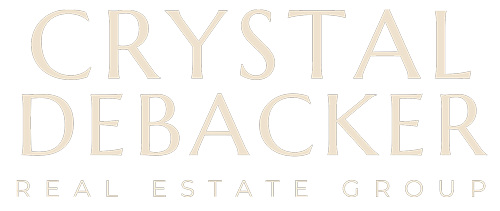Let’s face it—buying a home is stressful enough without worrying about your credit score. But if you’ve got less-than-perfect credit, don’t worry. You’re not alone, and yes—you can still snag a great mortgage rate with the right game plan. This guide breaks it all down, step-by-step.
Understanding How Mortgage Rates Work
Before we jump into the how, let’s quickly cover the what.
What Influences Mortgage Rates?
Mortgage rates are like the weather—they change often, and a lot of factors play a role. Here are a few:
- Your credit score
- The loan type (conventional vs. FHA, etc.)
- Market interest rates
- Loan amount and term
- Down payment amount
It’s like baking a cake—every ingredient matters to get the best result.
Fixed vs. Adjustable Rates
There are two main types of mortgage rates:
- Fixed-rate: Stays the same for the life of the loan.
- Adjustable-rate (ARM): Starts lower but can increase later.
If you have bad credit, a fixed rate may feel safer long-term—but don’t dismiss ARMs entirely. Some offer a low starting rate that could work in your favor if you plan to refinance or move within a few years.
Why Bad Credit Affects Your Mortgage Rate
Okay, let’s get real. Lenders aren’t trying to be mean—they’re just trying to manage risk.
What’s Considered “Bad” Credit?
Generally:
- 740+ = Excellent
- 670–739 = Good
- 580–669 = Fair
- Below 580 = Poor
If you’re under 670, lenders might see you as a higher-risk borrower. But that’s not the end of the story.
How Lenders View Credit Risk
Lenders use your credit score to predict how likely you are to repay a loan. Bad credit = more risk, so they charge a higher rate to offset that. But here’s the good news—you can do things to reduce that risk in their eyes.
Step-by-Step: How to Secure a Lower Rate with Bad Credit
It’s time to get tactical. Here’s how you can turn things around.
1. Check and Understand Your Credit Report
Knowledge is power. Before you apply, get a free copy of your credit report at AnnualCreditReport.com. Review it line by line.
Spot and Dispute Errors
Credit reports are far from perfect. If you spot any errors—like late payments you didn’t actually miss or accounts you don’t recognize—dispute them immediately. Even one fix could boost your score.
2. Save for a Larger Down Payment
Money talks—especially with lenders.
How a Bigger Down Payment Helps Offset Credit Risk
Putting down 20% or more can offset a low credit score. It reduces the lender’s risk, which can help you land a better interest rate. Even 10% can make a big difference compared to the bare minimum.
3. Shop Around and Compare Lenders
One of the biggest mistakes people make? Sticking with the first lender they talk to.
Local vs. Online Lenders
Don’t just check with your bank. Get quotes from local mortgage brokers, credit unions, and online lenders. Rates can vary widely—and sometimes, small local lenders are more flexible with credit challenges.
4. Consider Government-Backed Loans
These are a lifeline if your credit isn’t stellar.
FHA, VA, and USDA Explained
- FHA Loans: Allow credit scores as low as 500 (with a higher down payment).
- VA Loans: For veterans and military families—no down payment required and flexible credit standards.
- USDA Loans: For rural areas—zero down and low credit requirements.
These loans are designed to open the door for more buyers.
5. Improve Your Debt-to-Income Ratio
Your debt-to-income ratio (DTI) is how much of your monthly income goes toward debt payments. Lenders love to see a number under 36%.
Lower DTI = Lower risk = Better mortgage rate. So pay down credit cards, consolidate where you can, or increase your income before applying.
6. Use a Mortgage Broker
Not all heroes wear capes—some are brokers.
Pros and Cons of Using a Broker
A broker can shop multiple lenders for you and sometimes find deals you wouldn’t discover on your own. Just make sure they’re reputable and transparent about fees.
7. Lock In the Rate at the Right Time
Timing is everything. Keep an eye on market trends and talk to your lender about when to lock your rate. Some even offer “float-down” options in case rates drop before closing.
Bonus Tips to Boost Approval Odds
Let’s pile on the smart moves.
Get Pre-Approved Before House Hunting
A pre-approval shows sellers (and yourself) that you’re serious. It also gives you a clearer picture of what you can afford—and at what rate.
Avoid New Credit Before Applying
Now’s not the time to finance a new car or open a store credit card. New credit can ding your score and throw off your DTI.
Add a Co-Signer or Joint Applicant
A family member with stronger credit can sometimes help you qualify for a better rate. Just make sure they’re in it for the long haul.
Pitfalls to Avoid with Bad Credit Mortgages
Here’s what not to do.
Watch Out for Predatory Lenders
If a lender promises you the moon but asks for huge upfront fees or pushes you into a risky loan—run. Check reviews and always read the fine print.
Don’t Overextend Yourself Financially
Just because you can get a mortgage doesn’t mean you should stretch your budget. Aim for monthly payments that leave you breathing room.
Final Thoughts
Getting a mortgage with bad credit isn’t just possible—it’s doable with the right plan. It’s all about reducing risk, shopping smart, and showing lenders you’re serious. Remember, your credit score doesn’t define your future. With a little hustle and some savvy moves, you can still land a solid rate and step into the home you’ve been dreaming of.
FAQs
1. Can I get a mortgage with a credit score under 600?
Yes, especially through FHA or other government-backed loans. Expect to pay more upfront or show extra documentation, but it’s totally possible.
2. Will shopping around for a mortgage hurt my credit score?
Not much. Multiple mortgage inquiries within a 45-day window are typically treated as one by credit scoring models.
3. What’s the lowest down payment I can make with bad credit?
FHA loans allow as little as 3.5% down if your credit is at least 580. Below that, you may need 10% down.
4. How long does it take to improve a credit score?
You can see results in as little as 30 days if you dispute errors or pay down debt. Bigger improvements usually take 3–6 months.
5. Should I wait to buy a house until my credit improves?
That depends on your market. If prices and rates are rising fast, buying now with a slightly higher rate and refinancing later might be the smarter play.





